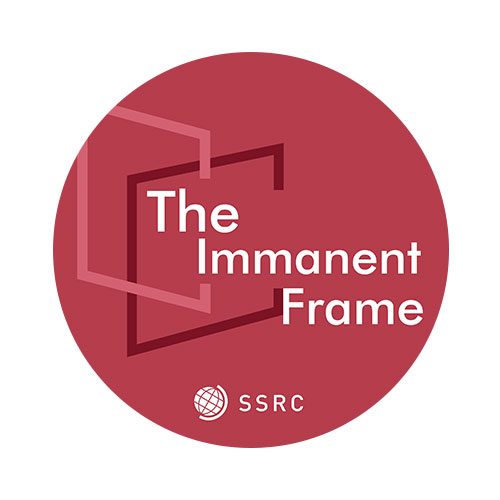In 2006, when I conducted research for my dissertation in Dubai, I encountered a diasporic population of Indians and other South Asians who were well-settled in the downtown neighborhoods of “old Dubai” and relatively permanent despite citizenship and migration policies in the United Arab Emirates. South Asians are today the largest immigrant population in the Gulf, far outnumbering citizens in several countries. The Gulf Arab states do not allow for naturalization or permanent residency, and require immigrants to hold temporary renewable work visas or be listed as dependents of those who hold such visas.
Starting with SSRC president Alondra Nelson’s reflections on “Society after Pandemic,” this series of essays explores the human, social, political, and ethical dimensions of Covid-19. These pieces call attention to how social research can shed light on the short- and long-term effects of the pandemic and what can be done to improve responses, both now and in the future.
The publication of this series would not be possible if not for the help of the following SSRC staff:
Juni Ahari, communications and editorial assistant.
Cole Edick, program associate, Anxieties of Democracy and Media & Democracy programs.
Carrie Hamilton, program assistant, Social Data Initiative and Media & Democracy program.
Saarah Jappie, program officer, Transregional Collaboratory on the Indian Ocean.
Michelle Lee, program assistant, International Dissertation Research Fellowship.
Line Sidonie Talla Mafotsing, communications and editorial assistant, African Peacebuilding Network and Next Generation Social Sciences in Africa.
Daniella Sarnoff, program director, International Dissertation Research Fellowship.
Catherine Weddig, program assistant, Social Data Initiative and Media & Democracy program.
Themes
Essays

Pre-Existing Conditions: Pandemics as History
by Andy HorowitzHistorian Andy Horowitz reminds us that disasters are never simply events confined to a particular time or set of circumstances in this contribution to the “Covid-19 and the Social Sciences” series. Using the notion of “pre-existing conditions,” a phrase typically confined more narrowly to analyze individual health outcomes, Horowitz questions how we assign a beginning to the pandemic. Our choices in this regard will influence how the story of the pandemic is told, who is assigned blame for what, and what are indeed the lessons to be learned from the experience. He also suggests that in times that feel “unprecedented,” it is all the more important to use history as a way to understand the present and chart a path to the future.

Bolsonaro’s Chloroquine: Epidemics, History, and Social Inequality in Brazil
by Marcos CuetoFor many observers in the United States, the political actions of Jair Bolsonaro of Brazil may appear to mimic US president Donald Trump’s disregard for science-informed policy and admiration for exclusionary nationalism. However, Marcos Cueto shows in this essay for the “Covid-19 and the Social Sciences” series that Bolsonaro’s actions must be understood in a broader Brazilian context of history, politics, and health policy. Cueto illustrates the influence of longstanding public health policies that focus on technological interventions without addressing social determinants, and finds a continuity with the perspective of the state as a whole toward public health, a tendency to rely on vertical authority structures, and Bolsonaro’s approach to the pandemic, including his evidence-defying embrace of the drug chloroquine.

Looking at Covid-19 through Models of Social Mobility and Social Change
by Xi SongIn the latest contribution to the “Covid-19 and the Social Sciences” series, Xi Song addresses how the models and methods that focus on social mobility can help us think about the effects of Covid-19 pandemic in the short and long-term. Song takes us through a brief history of social mobility research, and its focus on changes in mobility over time, across generations, and in different locations. She then explores the kinds of social mobility questions that Covid-19 raises, both in the short-term for households that have suffered from the virus, and the longer-term impacts of this “exogenous shock” on patterns of employment trajectories, income, consumption, and beyond.

Responding to the Covid-19 Pandemic in Tanzania: The Role of Solidarity, National Unity, and Peace
by Iddy Ramadhani MagotiThis article explores responses to the new coronavirus (Covid-19) pandemic by focusing on the role of the principles of solidarity, national unity, and peace, drawing on the case of Tanzania. At the time the World Health Organization (WHO) declared Covid-19 a global health emergency on March 11, 2020, no cases had yet been reported in Tanzania. Some people within the country initially thought the contagion could not spread to warm tropical areas like Tanzania. They were surprised when the country’s Minister for Health officially reported the first Covid-19 case on March 16, 2020. By May 7, 2020, 509 cases had been reported in Tanzania.

Crisis Informatics and Mutual Aid during the Coronavirus Pandemic: A Research Agenda
by Robert SodenIn his contribution to the “Covid-19 and the Social Sciences” series, Robert Soden describes how mutual aid groups are more effectively responding to the pandemic with the help of a broad range of technological and social media tools. Using the insights of crisis informatics, he draws out connections between traditional community organizing, disaster response, data privacy, disinformation, and social and racial justice. In addition to considering the importance of understanding this community work and strategies for the current moment, Soden looks ahead to a postpandemic world, urging researchers and communities alike to be sure to use what is learned now to forge a just “new normal” for the future.

Varieties of Covid-19 Expertise: The Pandemic in China, Hong Kong, and the United States
by Larry Au, Zheng Fu and Chuncheng LiuIn their contribution to the “Covid-19 and the Social Sciences” series, Larry Au, Zheng Fu and Chuncheng Liu examine how experts and expertise have been drawn upon in predicting the path of the pandemic and how to respond to it in China, Hong Kong, and the United States. The authors draw on their ongoing research that traces media accounts of the role of expert knowledge in all three places, and discuss how different kinds of expertise engage with different audiences: with the state in China, with civil society in Hong Kong, and with both in the United States.

Lessons from Conflict Studies on Research during the Coronavirus Pandemic
by Kanisha D. Bond, Milli Lake and Sarah E. ParkinsonKanisha D. Bond, Milli Lake, and Sarah E. Parkinson offer four lessons from conflict research for the “Covid-19 and the Social Sciences” series. Based on their own extensive backgrounds conducting fieldwork in insecure places, the authors outline several points for researchers newly grappling with pandemic-induced insecurity: that crisis heightens conditions of vulnerability and inequality, that fieldwork is perpetually fraught, that researchers must demonstrate restraint, and that empathy is key. Keeping these lessons in mind, they argue, will help researchers to center the concerns of those at the margins and produce research that is both methodologically and ethically sound.

Muslims and the American Political Imaginary during a Pandemic
by Kambiz GhaneaBassiriIn these times of crisis, American Muslims have not been singled out for scrutiny by the media or the state. On the contrary, media coverage of their lives during the current Covid-19 pandemic has showcased their varied and pragmatic responses to lockdown measures and has highlighted how their responses are not much different from other Americans. This is remarkable given America’s recent history.

Refugees and Migrants – A Blind Spot in Ghana’s Covid-19 Response?
by Amanda CoffieSome of the measures adopted by states to combat the Covid-19 pandemic pose challenges to non-citizens, particularly refugees, asylum-seekers, and migrants. As noted by the Assistant Commissioner of the United Nations High Commissioner for Refugees (UNHCR), “not only have national responses to Covid-19 led to the denial of fundamental refugee rights, but they have also resulted in the unnecessary and disproportionate use of immigration detention, a dramatic rise in sexual violence, discriminatory restrictions on access to health and social services, and the loss of livelihoods.”






